Ticket Time

Is it necessary to have a return ticket for a tourist visa application ?
The text discusses the importance of a return ticket for a tourist visa application. It states that a return ticket is necessary to ensure the traveler has plans to return to their home country after the completion of their trip. Other documents required for a tourist visa application include a valid passport, hotel reservation, travel itinerary, financial evidence, invitation letter, travel insurance, application form, and photo. The return ticket is considered important as it shows the embassy or consulate that the traveler plans to return to their home country after their trip, reduces the chances of overstaying their visa period, assures the authorities of departure arrangements, and maintains the integrity of visa policies. If a traveler cannot provide a return ticket at the time of application, there is a high probability of visa rejection. However, an onward journey ticket can be provided as an alternative. Alternatives to a return ticket include one-way tickets, open-ended tickets, refundable tickets, and onward journey tickets. To ensure the availability of a return ticket, travelers should book in advance, choose flexible dates, opt for refundable tickets, and check with airlines about their policies. Not providing a return ticket can lead to visa rejection, blacklisting, impact future applications, and financial losses. Travel agents can assist in getting a return ticket or suggesting alternatives but may charge additional fees.

How does the growth of technology affect the business aspects of sports, such as ticket sales and broadcasting rights ?
The growth of technology has significantly transformed various aspects of business, including sports. Technology has revolutionized how activities like ticket sales and broadcasting rights are conducted, creating new opportunities for revenue generation and enhancing the fan experience. In this article, we will explore the ways in which technology has affected the business aspects of sports. One of the most significant impacts of technology on ticket sales is the emergence of online platforms. These platforms have made it easier for fans to purchase tickets from anywhere in the world, at any time. They also provide a more convenient and secure way of buying tickets, reducing the risk of fraud or counterfeit tickets. Mobile applications have also played a crucial role in transforming ticket sales. Fans can now purchase tickets directly from their smartphones, making the process even more convenient. Additionally, some apps offer features such as virtual ticket wallets, allowing fans to store their tickets digitally and access them easily on game day. Technology has also enabled the implementation of dynamic pricing models for sports tickets. This approach involves adjusting ticket prices based on factors such as demand, opponent, and time remaining until the event. By using data analytics tools, teams and organizations can optimize their pricing strategies to maximize revenue while still providing fair prices for fans. The rise of streaming services has had a profound impact on the broadcasting rights industry. These platforms allow fans to watch live sports events from anywhere with an internet connection, expanding the potential audience for sporting events. As a result, broadcasting rights fees have increased significantly, generating substantial revenue for sports leagues and organizations. Technology has also enhanced the viewing experience for fans through interactive features integrated into broadcasts. These features include things like real-time statistics, social media integration, and alternate camera angles. By providing a more engaging and personalized viewing experience, these technologies help attract and retain viewers, further increasing the value of broadcasting rights. Finally, advancements in virtual reality (VR) and augmented reality (AR) technologies are beginning to influence the broadcasting rights landscape. These technologies offer new ways for fans to experience sports events, such as virtual attendance or immersive replays. As these technologies become more widespread and affordable, they could potentially create additional revenue streams for sports organizations through specialized content offerings. In conclusion, the growth of technology has had a profound impact on the business aspects of sports, particularly in areas like ticket sales and broadcasting rights. By embracing these advancements and adapting their strategies accordingly, sports organizations can continue to thrive in an increasingly competitive marketplace while providing fans with unprecedented access and engagement opportunities.

How do I get tickets for an idol concert ?
The article provides a comprehensive guide on how to obtain tickets for an idol concert. It outlines five main steps: researching concert details, preparation, being ready on sale day, exploring alternative methods, and employing additional tips and tricks. The first step involves gathering information about the concert date, time, venue, ticket prices, and on-sale details. Preparation includes creating accounts on ticketing platforms, having payment methods ready, ensuring a stable internet connection, and using multiple devices. On sale day, one should log in early, refresh continuously, and make a quick transaction. Alternative methods include purchasing at the box office, looking out for official presales, buying from authorized resellers, and checking for last-minute releases. Additional tips involve joining fan clubs, following social media for exclusive presales, and avoiding scams by only buying from authorized sellers. By following these steps and being persistent, one can increase their chances of securing tickets to see their favorite idol perform live.

What are some innovative ways sports event organizers have used to engage fans and increase revenue ?
Innovative Ways Sports Event Organizers Engage Fans and Increase Revenue Sports event organizers are always looking for innovative ways to engage fans and increase revenue. This is crucial for the success of their events, as it ensures high attendance rates and maximizes profits. Some of the most effective strategies that have been implemented in recent years include interactive experiences like virtual reality (VR) and augmented reality (AR), mobile apps with live streaming and social media integration, enhanced stadium experiences with Wi-Fi connectivity and unique concessions, ticket pricing strategies like dynamic pricing and season tickets/membership programs, and marketing initiatives like sponsorships/partnerships, targeted advertising, and influencer collaborations. By continuing to explore new ideas and technologies, sports event organizers can ensure the continued growth and success of their events.

How do celebrities spend their leisure time ?
Celebrities enjoy leisure activities such as traveling, pursuing hobbies, spending time with family and friends, and engaging in philanthropy. They explore new cultures, take luxury vacations, participate in humanitarian trips, practice artistic pursuits, stay fit through sports, prioritize family gatherings and friendships, and give back to society through fundraising events and advocacy work.
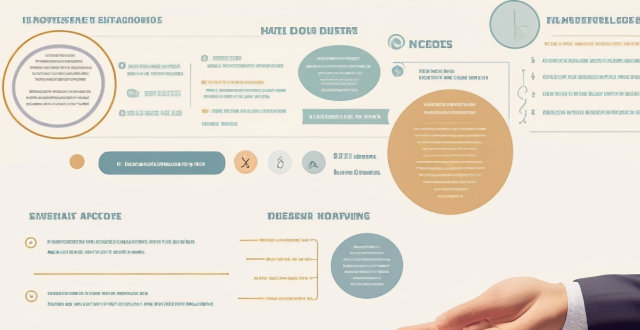
Is it better to pay off student loans quickly or over time ?
When it comes to paying off student loans, there are two main strategies: paying them off quickly or spreading out the payments over time. Both approaches have their advantages and disadvantages, and the best choice depends on your individual financial situation and goals. In this article, we will explore the pros and cons of each strategy to help you make an informed decision.

How can families make time for both sports and quality family time ?
In today's fast-paced world, finding a balance between work, personal interests, and family time can be challenging. For families with members who are passionate about sports, integrating quality family time and sports activities requires careful planning and a commitment to making the most of every moment together. Here's how families can make time for both sports and quality family time: ### **Prioritize and Plan** #### _Set Clear Priorities_ - Discuss as a family what each member values most in terms of sports and family time. - Agree on a set of priorities that everyone can commit to. #### _Create a Shared Calendar_ - Use a family calendar to schedule sports practices, games, and family activities. - Make sure everyone has access to the calendar and updates it regularly. ### **Integrate Sports into Family Time** #### _Attend Sports Events Together_ - Make attending sports games or practices a family outing. - Cheer on the athlete together, making it a shared experience. #### _Play Sports as a Family_ - Engage in sports activities that everyone enjoys, such as bike rides, hikes, or backyard games. - Encourage non-athletic family members to participate in ways that suit their interests and abilities. ### **Quality Over Quantity** #### _Make Every Moment Count_ - Even short periods of time can be meaningful if everyone is fully engaged. - Turn off distractions like phones and TVs to focus on each other. #### _Regular Family Meetings_ - Hold regular family meetings to discuss schedules, concerns, and plans. - Use this time to reinforce the importance of both sports and family time. ### **Flexibility and Adaptability** #### _Be Open to Change_ - Recognize that unforeseen events may require adjustments to plans. - Maintain a flexible attitude to accommodate changes without stress. #### _Communicate Openly_ - Encourage open communication about feelings and scheduling conflicts. - Address any issues promptly to avoid resentment or burnout. ### **Support and Encouragement** #### _Encourage Each Other_ - Support family members in their sports endeavors and recognize their efforts. - Acknowledge the sacrifices made by non-participating family members. #### _Celebrate Achievements Together_ - Celebrate sports achievements as a family, no matter how big or small. - Create traditions around these celebrations to strengthen family bonds. ### **Conclusion** By prioritizing, planning, integrating sports into family time, focusing on quality interactions, being flexible, and providing support, families can successfully make time for both sports and quality family time. It's all about finding the right balance that works for your unique family dynamics and embracing the enriching experiences that both realms offer.
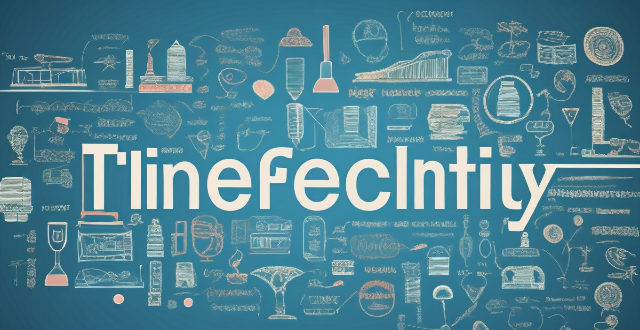
What are some tips for managing my time effectively while studying ?
Managing time effectively is crucial for academic success. Create a study schedule by identifying goals, prioritizing tasks, and allocating time. Eliminate distractions by turning off notifications, finding a quiet place, and using focus techniques. Take regular breaks, engage in physical activity, and avoid multitasking. Use tools like time management apps, study groups, and online resources. Stay motivated by setting achievable goals, celebrating accomplishments, and seeking support.

Are there any scholarships available for part-time students ?
Part-time students face unique challenges when it comes to financing their education, but there are still scholarships available for them. Need-based scholarships are awarded based on financial need, while merit-based scholarships are awarded based on academic achievement or other criteria. Employer tuition assistance programs may also be an option for part-time students. Tips for applying for scholarships as a part-time student include starting early, being prepared, and following instructions carefully.
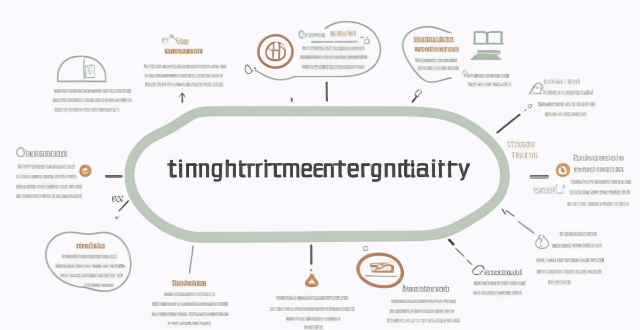
How can I prioritize tasks effectively to manage my time better ?
Effective time management involves prioritizing tasks to improve productivity and reduce stress. The process begins with identifying goals, followed by using the Eisenhower Matrix to categorize tasks based on urgency and importance. Breaking down large tasks, maintaining a to-do list, and setting realistic deadlines also aid in efficient task prioritization. These strategies help manage time effectively and achieve success in personal and professional life.

What are some time-saving tips for preparing home-cooked meals ?
Time-saving tips for preparing home-cooked meals include planning meals in advance, using a slow cooker or pressure cooker, prepping ingredients ahead of time, cooking once and eating twice, using convenience foods wisely, cleaning as you go, and simplifying your menu. These strategies can help save time and reduce stress during meal prep while still allowing you to enjoy delicious homemade dishes.
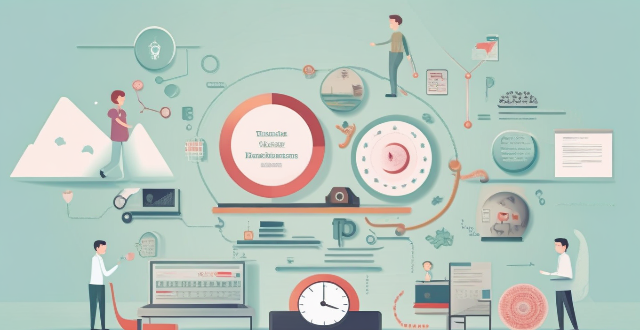
What are some effective time management techniques for students ?
Effective time management techniques for students include prioritizing tasks, setting goals, creating a schedule, utilizing time management tools, minimizing distractions, and taking breaks. These strategies help students focus on important tasks, allocate time efficiently, avoid procrastination, and maintain a healthy work-life balance.

Are there benefits to waiting for a product to go on sale rather than buying it immediately ?
Waiting for a product to go on sale rather than buying it immediately can bring several benefits, including saving money through discounted prices and budget-friendly options. It also allows for more value through bundled deals and the potential to upgrade to newer models. Waiting helps avoid impulse buying by providing more time to decide and potentially avoiding buyer's remorse. Taking advantage of seasonal sales during holidays or end-of-season can lead to significant savings. Tax benefits may also be available in certain circumstances. Finally, waiting can ensure you get a more mature and refined version of the product as manufacturers have had time to address any initial flaws. Overall, being patient and strategic with purchases can result in numerous financial and practical advantages.

How often do you run limited-time promotions ?
Running limited-time promotions can be an effective strategy for businesses to increase sales, acquire new customers, and manage inventory. The frequency of these promotions depends on various factors such as business goals, target audience, and product/service offerings. Limited-time promotions offer benefits such as increased sales through urgency and discounts, customer acquisition by attracting new customers and rewarding loyalty, and inventory management by clearing excess inventory and promoting seasonal products. Best practices for limited-time promotions include planning and timing, marketing and promotion, and tracking and analysis. By following these practices, businesses can maximize the benefits of limited-time promotions and achieve their desired outcomes.

Can speed reading help me save time when studying for exams ?
Speed reading can save time when studying for exams by increasing efficiency, improving recall, managing time better, and reducing stress. However, it may compromise comprehension, not be suitable for all text types, require skill development time, and lead to overconfidence. To effectively use speed reading, start early, combine techniques, take breaks, test comprehension, and customize your approach.
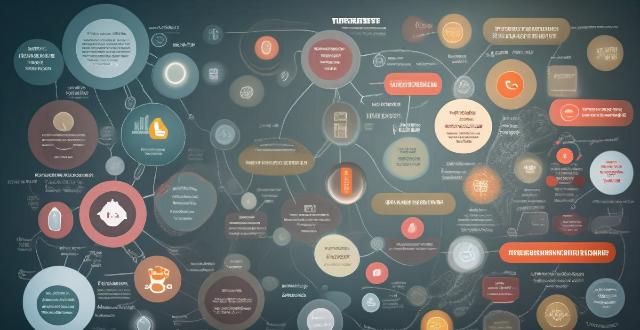
What are some common mistakes people make in time management ?
Effective time management is crucial for productivity, yetEffective time management is crucial for productivity, yet leading to stress and ineff underestimating task time, multitasking, poor planning, not saying 'no', failing to take breaks, perfectionism, disorganization, and ignoring tools and techniques designed to improve time management. Recognizing these mistakes can help individuals improve their time management skills, leading to increased productivity, reduced stress, and better overall well-being.

How can I organize my cleaning routine to save time ?
The text provides tips on how to organize your cleaning routine to save time. It suggests creating a cleaning schedule with daily, weekly, and monthly tasks; using multi-tasking products; decluttering regularly; involving family members in the process; and using technology to streamline the routine. By following these tips, you can plan, prioritize, and stay consistent with your cleaning schedule to save time.
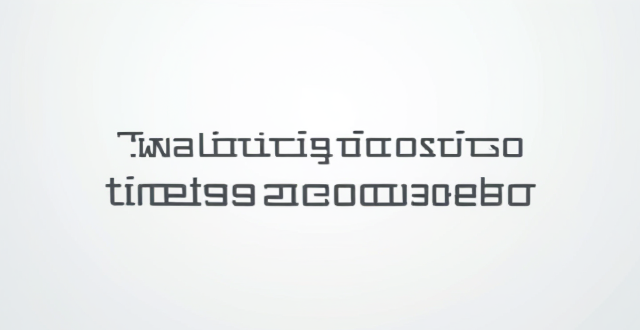
Are there any discounts available for first-time customers ?
The text is about the availability of discounts for first-time customers and provides a summary of various types of discounts, such as sign-up discounts, coupon codes, loyalty programs, and referral programs. It also offers tips on how to find these discounts, including checking the business's website, following them on social media, and signing up for email newsletters. The conclusion summarizes that there are many types of discounts available for first-time customers, and by using the provided tips, one can easily find and take advantage of these offers to save money on their first purchase.